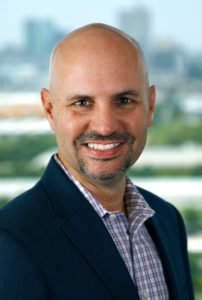Through NIH HEAL Initiative, Dr. Scott Walters and colleagues accelerate fight against the nation’s opioid crisis

Four years ago, the National Institutes of Health introduced the unprecedented HEAL Initiative to address the nation’s public health crisis of opioid misuse, addiction and overdose. More than $2 billion has been invested in 1,000 research projects to date, spanning basic and clinical research to prevention and implementation science.
For the last three years, Dr. Scott Walters, a Regents Professor at The University of North Texas Health Science Center at Fort Worth’s School of Public Health, has served as steering committee chair of the largest of these studies, the 67-community HEALing Communities Study.
The latest effort will establish a new center to disseminate the results of the research to communities most affected by the overdose crisis. The center will build a bridge between HEAL-funded researchers and community partners to better address the needs and priorities of communities.
“We’ve done the research,” Walters said. “It’s time to talk about the results. We’re partnering with more than 20 national organizations representing different stakeholder groups, including research institutions, medical providers, substance use and recovery professionals, governmental representatives and people directly affected by pain or substance abuse.”
A major challenge with research, Walters said, is translating scientific findings into practice.
“On average, it takes about 17 years for scientific findings to influence clinical practice,” he explained. “Members of the public might not have a background in the research area. Providers may hold certain beliefs or rely on longstanding practices. Some messages or recommendations that come from research might seem confusing, which is why it’s important to summarize and translate information into plain language that people can use.”
No time to wait
“With the changing illicit drug supply, the opioid crisis has worsened in recent years,” Walters said. “Fatal overdoses have increased almost 30% since the start of the pandemic. Fentanyl and other synthetic opioids tend to be more deadly, leading to higher overdose rates. Our hope is that the findings from HEAL’s extensive body of work can now bring about change to this public health crisis.
“We don’t have years to wait – it’s important that the data and recommendations are delivered as quickly as possible, in ways people can understand and apply.”
Additional funding, partnerships to support communications and delivery
Through $25 million in new funding, Duke University and George Mason University have joined forces with the NIH HEAL Initiative to support the delivery of lay-friendly, culturally appropriate information on these scientific findings to communities most affected by the opioid crisis. These new committee members join Dr. Walters representing HSC in this dissemination center, along with the Addiction Policy Forum, Oregon Social Learning Center, University of Wisconsin, University of Alabama at Birmingham, Temple University and 67 national associations and partners across the U.S.
This expanded collaboration will form the foundation for meaningful, two-way communications throughout the life cycle of HEAL projects — from developing research ideas to sharing findings. A focus on health equity will underpin the effort at every level.
Dr. Walters has a primary role in this effort, drawing on his experience in implementation science. His charge is to identify patterns in the research, extract the most important findings and use information gathered from the public to explain the recommendations in plain language, ensuring sharing of information between researchers and stakeholder groups.
One important aspect of this center is a Lived Experience National Community Advisory Board, where researchers, practitioners, the criminal justice system, people impacted by pain and individuals experienced with opioids (someone in recovery or a family member) can share insight into ways the scientific research can be distilled and conveyed to communities.
“Our job now is to determine how to reach different stakeholders,” Walters explained. “A physician might look to a peer-reviewed journal, where a legislator might seek information from a policy brief, and an individual in recovery may gain information from a podcast or other community resource. Each of these audiences has different needs.”
Value in numbers, supporting research conclusions
The value for communities, he said, is that solutions can be applied in a more definitive way than would be possible through a single research study. The findings of multiple studies, Walters explained, can provide stronger evidence about what will work for different individuals, populations and stakeholders.
“We already know quite a bit about best practices,” Walters said. “The challenge is in getting communities to adopt them. For example, naloxone distribution, fentanyl test strips, safer prescribing and medication for opioid use disorders are important ways to reduce opioid overdoses – but this might require changes to systems or laws to promote these evidence-based practices.”
“The payoff for working collaboratively is that you can see scientific investments having a real-world impact on people’s lives. This new HEAL dissemination center is deploying all tools possible to attack the opioid crisis through a united front.”





Social media